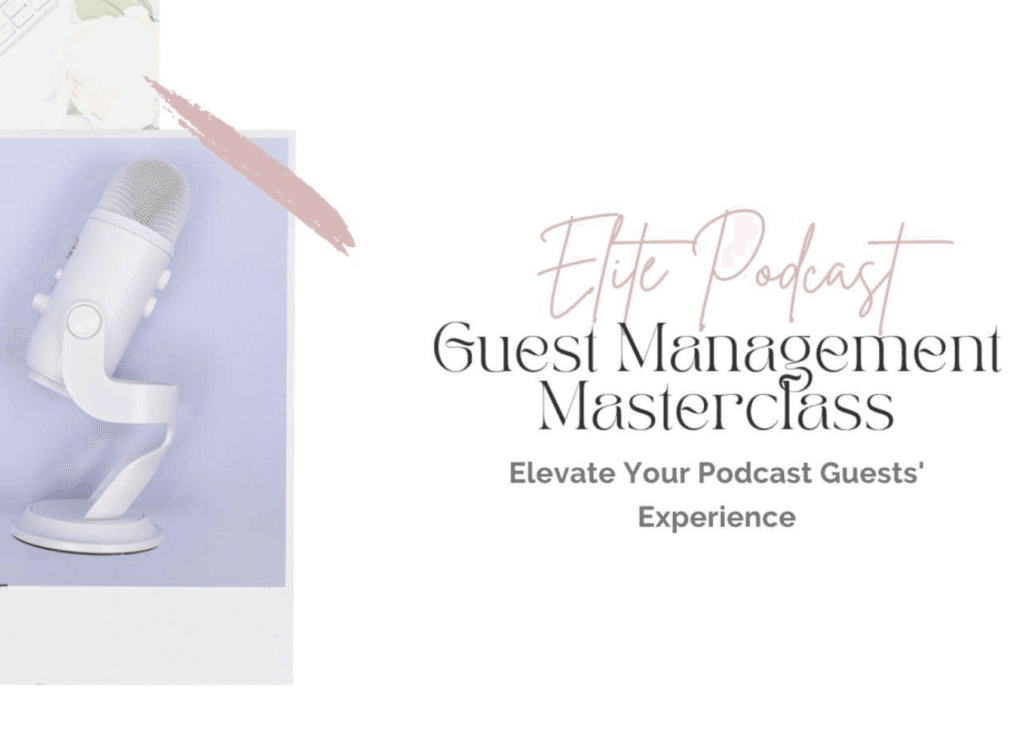If you’re running a podcast and have the privilege of interviewing awesome guests, you know how important they are to your show. Podcast guests can bring fresh perspectives, engaging stories, and valuable insights that keep your audience hooked.
Table of Contents
But have you ever considered the legal side of things when it comes to having guests on your show?
That’s where a podcast guest release form comes in.
In my opinion, this is an essential document that protects both you and your guest from any legal issues that may arise from the use of their voice, image, or likeness on your show.
It’s a simple yet vital step that can save you a lot of headaches down the road.
In this article, we’ll take a closer look at why having a podcast guest release form is so important, what it should include, and how to create one that works for you and your guests.
What is a podcast guest release form?
A podcast guest release form is a document that gives you permission to use a guest’s voice, image, and likeness on your show.
It’s a standard agreement that outlines the terms and conditions of the guest’s appearance on your podcast, including how the guest’s image and voice will be used, what compensation, if any, the guest will receive, and any other legal considerations.
If you search internet forums and Facebook Groups, you’ll likely find podcasters falling into 1 of 3 groups as far as guest release forms are concerned.
- The first group of people have never had an issue with guests and just do not see the point in having a guest release form for their podcast. Some even argue that it’s a barrier for their guest coming onto their show as it’s another task for the guest to complete.
- The second group (and where I sit) want to protect themselves, their business, their show, and their guest; and whether or not they’ve had issues with a guest in the past have implemented a guest release form as part of their guest onboarding process.
- The third group of people I find have never heard of a podcast guest release form and therefore don’t have much of an opinion on them. If this is you, you 100% need to read on 😉.
Written guest release forms
A written guest release form is my personal approach. Granted, I have a background in healthcare where a golden rule is ‘if it isn’t written down then it didn’t happen,’ but I like to have the certainty of everyone knowing what they’re agreeing to with nothing being left out.
Once signed, I store all of my guest release forms with my recorded episodes.
Pros of written guest release forms
- Protects your brand, you, and your podcast
- Protects your guest
- Makes your podcast look super professional
Cons of written guest release forms
- Can take a bit of time to set up
- Guests might not see the relevance and not complete
- Guests might see the form as a barrier to guesting on your show
Verbal guest release forms
Some podcasters prefer to go for a more relaxed approach to guest release forms and opt for a verbal agreement.
This can be seen as a lot easier than a physical form as this conversation can quickly take place before your guest recording. Also, a lot of podcasters just don’t see the need to go down a more ‘formal’ route of physical forms.
Personally, I prefer not to have a verbal agreement. As I said, I am biased from my healthcare background, but, I just like to know that things are written down and that I can prove an agreement should I need to.
Pros of verbal guest release forms
- Easier to organise than a written guest release form
- Guests might prefer the more informal approach
- You don’t have to chase guests to sign a release form
Cons of verbal guest release forms
- No proof of the agreement taking place (unless recorded)
- You might forget to include something in your explanation
- You might not feel your providing your podcast with enough protection
Why is a podcast guest release form important?
Having a podcast guest release form is essential for both you and your guest.
For you, it protects your podcast and brand from any legal issues that may arise from the use of your guest’s voice or image.
Imagine if your guest turns around in a few months’ time and demands that you remove any trace of them from your podcast and your podcast’s promotional materials. What a nightmare could that be? You might even have future episodes where you refer back to the episode your guest appeared on that are also affected by this demand.
Well, a guest release form can help you in such a situation. Why? Because by setting out from the beginning who is in charge of the final content can reduce issues and confrontations down the road.
For your guest, a guest release form provides them with the peace of mind that their voice and image will not be used in a way that is harmful to them or their reputation. It also explains from the outset that you (the podcaster) are in control of the interview content and how it is produced and distributed.
Protecting your podcast and brand
As a podcast host, you are responsible for the content that you create and share with your audience. This means that you need to be careful about the images and voices that you use on your show.
Without a podcast guest release form, you could be at risk of legal action if a guest feels that their image or voice has been used in a way that is harmful to them. This could include anything from defamation to invasion of privacy.
Legal considerations and liabilities without a release form
Without a podcast guest release form, you could be opening yourself up to a range of legal issues.
For example, if a guest claims that their voice or image has been used without their permission, in a worst-case scenario (although very unlikely!) you could be at risk of a lawsuit. Additionally, if a guest’s image or voice is used in a way that is harmful to their reputation, you could be held liable for damages.
How to create a podcast guest release form
Creating a podcast guest release form is a straightforward process. Here are the steps you can follow to create one that works for you and your guests:
Step 1: Research
Start by researching sample podcast guest release forms to get an idea of what should be included. You can find examples online or ask other podcasters for their recommendations.
Step 2: Create a template
Once you have an idea of what should be included, create a template that you can use for all of your guests. This will save you time in the long run and ensure that all of your guests are on the same page.
Where to get a guest release form template
If you want a ready-made template, the best one that I’ve found is from Entertainment Lawyer, Gordon Firemark. The template is 100% free and can be customised for your podcast. Click here to access the template.
Jotform also has a podcast guest release template that you might prefer to use. You can view and access that form here.
Step 3: Customise the form
Once you have a template, customise it for each guest by adding their name and contact information and any other relevant details.
Step 4: Get it signed
Before your guest appears on your show, make sure that they sign the release form. This can be done electronically or in person.
Will I ever need to enforce my podcast guest release form?
I’ll be honest: I hope not.
And this is why I’ve seen so many podcasters say that they don’t bother with guest release forms, because they’ve never known anyone to have to enforce one.
And there’s nothing wrong with that train of thought. I, personally, just prefer to err on the side of caution.
If you do ever need to enforce your guest release form, I’d highly recommend getting advice from someone who is qualified in this area of law and in your legal jurisdiction.
Tips for implementing a podcast guest release form
Implementing a podcast guest release form is a simple yet important step in running a successful podcast. Here are some tips to help you get started:
Be clear about your intentions
Make sure that your guests understand why you need a release form and what it entails. This will help to build trust and ensure that everyone is on the same page.
Make it easy to sign
Use a digital platform to make it easy for guests to sign the release form. This could include an online form or a service such as DocuSign.
Follow up
Make sure that you follow up with guests after they have signed the release form to confirm any details and answer any questions they may have.
Integrate your podcast release form into your workflow
If you’re ready to take your podcast guest workflow to the next level, the Elite Onboarding Masterclass is for you.

This is for you if you:
- Are spending way too much time with a manual podcast workflow.
- Things are getting missed when you are booking and hosting clients on your podcast.
- You’re worried that your podcast workflow doesn’t match the same professionalism as the rest of your business.
- You want to make a good first impression to potential podcast guests; giving them that sense of a premium experience.
- You’re often left having to go back to podcast guests multiple times asking for various bits of information.
- You’ve heard about Guest Release Forms, but you’ve no idea where to start with implementing one.
This is not for you if you’re:
- A podcaster who is not interested in featuring guests on your show.
- Not willing to put in the work and implement the strategies taught in the course.
- Looking for a course that covers the technical aspects of podcasting. If you want this type of tuition, check out The Confident Podcaster.
Conclusion
Having a podcast guest release form is an essential step in running a successful podcast. It protects both you and your guest from any legal issues that may arise from the use of their voice, image, or likeness on your show.
By following the tips outlined in this article and using the examples provided, you can create a release form that works for you and your guests and ensures that your podcast remains legally sound and successful.
This post may contain affiliate links. If you click on an affiliate link and make a purchase, I may earn a small commission at no additional cost to you. For more information, see our Privacy Policy.





